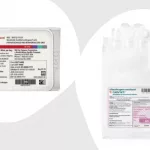At First, I Thought It Was Nothing…
You ever have that moment where your gut feels a little off, and you brush it off as leftover pizza from two days ago? That’s me. A year ago, I just chalked up my bloating to “too much caffeine” and my mood swings to… well, being human. But when the fatigue hit like a ton of bricks and my sugar cravings turned real messy, I realized it was more than just a rough week. My gut wasn’t just whispering for help—it was screaming. Enter the smart capsule: this tiny tech marvel that finally let me hear what my GI tract was trying to say. If you’re nodding along, thinking, “Yeah, me too…”, this is for you.
Why This Feels Like The Future
Last week, my friend Jane told me her doctor prescribed the smart capsule to check out her digestive chaos. I’m not kidding: she just swallowed that little pill-sized gadget, and it mapped her gut health in real time. Hip? Absolutely. SCARY? Maybe a little. But honestly? It’s better than the alternative: invasive scans, guesswork, or a parade of random supplements that don’t work. Like everything, there are risks—we’ll dive into those later—but let’s start with why this feels like a breakthrough. After all, your GI tract is doing way more than you think.
What Exactly Is the Smart Capsule?
The smart capsule isn’t just a cool gadget; it’s a revolution for GI tract health. Think of it as a tiny Mikey Mouse going on a cruise through your intestines. Except instead of a cruise ship, he’s got sensors for tracking pH, temperature, and even gut health monitoring indicators like cytokines that spell trouble if something’s inflamed (a Caltech study breaks it down).
How Does It Work?
Short story: You swallow it, and it floats through your digestive system like a miniature scuba diver. Along the way, it picks up data—like electrolytes and metabolites—then beams that info to your phone or Doctor’s dashboard. No wires, no pain, no “please, never again” feelings afterward.
Real Stories, Real Impact
Let’s talk specifics. Researchers tested this capsule in patients with metabolic syndrome indicators, tracking short-chain fatty acids (SCFAs) linked to diabetes and obesity. Turns out, these GI tract biomarkers aren’t just random data points—they’re life monitors (check this article for the nitty-gritty). One guy in the study, let’s call him Dave, was putting on weight, starving but tired all day. His capsule revealed low SCFA levels—a sign his gut bacteria weren’t producing enough energy. Then comes a tweak in diet and probiotics, and boom—Dave’s metabolism jolted awake. Stories like that? That’s the kind of magic we’re talking about.
Wait, My Gut Affects More Than Digestion?
So you swallow the capsule. It sails down (you can see how excited I am already). But why are we getting so worked up about the GI tract? Because this stretch of pipes is the iceberg under the water’s surface, doing hidden heavy lifting. Down below, your GI tract has its fingers in everything:
The Gut-Brain Love Story
Ever get hangry? Or have “butterflies” before a big meeting? That’s your gut talking. Turns out, 90% of the serotonin we know as the “happy vibes hormone” is made in your gut (a BMJ study dives in). Even more shocking: your gut hitchhiked neurons from your brain and made its own backup system—the enteric nervous system. If you’ve ever thought your stomach has feelings, you’re not wrong. The gut is like the moody teenage cousin who runs the show in your DNA comedy.
Immune System HQ?
Dreaming of one day avoiding the flu? Maybe your gut’s the real MVP there, too—it houses 70% of your immune cells. If your gut’s inflamed, your immunity might be on fumes instead of full steam. We’re talking high-five action with white blood cells, debugging viruses before they party. Yeah, this isn’t just about digestion—it’s survival tech.
Key Biomarkers It Tracks
Cytokines and Inflammation
Let’s break this down: inflammation is your body’s “UNO Reverse Card” when it’s fighting invaders. Cytokines are like clicker remotes to your immune system, signaling red flags. The capsule measures pro-inflammatory cytokines, so villains like IBS or Crohn’s don’t fly under the radar. Sweet, right?
Short-Chain Fatty Acids (SCFA) + Metabolic Health
SCFAs are produced when your gut bacteria get partyish with your fiber. Problem: low SCFA levels? Hello metabolic syndrome indicators. If your gut’s microbes are throwing an energy-less pity party (medical term: dysbiosis), that’s your capsule nudging you to rethink grains, hors d’oeuvres, or whatever is turning you into a carb-zombie. It’s not just about gut bloat anymore—it’s a broader marker of whether your BodyVision is on track (PubMed breaks down their role).
Pros and Cons: Is It Right For You?
Here’s where things get serious. Like any tech, the smart capsule is exciting, but we can’t sugarcoat the hiccups. Let’s weigh the good and… the not-so-good.
Pros: The Upside
| Pros | Traditional Endoscopy |
|---|---|
| Non-invasive: Swallow a pill, not a fiber-optic camera. | Painful tube shoved down your throat. Gentle start to the morning? Nope. |
| Real-time data: Track pH, cytokines, even gas from your gut while you binge Netflix. | Intermittent data—means you’d wait months, even after symptoms flare up. |
| Personalized insights: No two guts are alike. This lets your doctor customize your plan. | Generic solutions unless you can say “Colonoscopy” faster than it says “Not covered under insurance.” |
Risks: The Reality Check
Now, the hard part. The capsule’s experimental—it’s not in every pharmacy just yet. Sure, gut health monitoring is stepping into the spotlight, but insurance might still take one look and go, “Cool story.” There’s also the rare chance the tech fails—or gives wonky readings (UHC mentions guidelines here). And accessibility? Oh boy.
Language Preference and Prescription Disparities
Citrus twist: Language matters. MedicalXpress (article link) found that 12.2% of patients in the U.S. were on CGMs in 2025, but if your English is more “eh” or Spanish/Chinese dominates your inner dialogue, your doctor might assign you… crickets. This isn’t just about gadgets; it’s about money, cultural awareness, and what feels obvious in theory but can trip up our systems in practice. Equal health tech isn’t equitable unless we fix it.
I Think My Gut’s Crying, Should I Try This?
Common Red Flags To Look For
Check your symptoms. If you’ve got these on loop, the capsule—not to mention a human doctor!—might help you figure out the next chapter.
- Constant bloating that sticks around past the weekend
- Persistent fatigue like you never caught up on sleep
- Mood crashes from hell without a nap-in-sight
- Sugar cravings worse than your teenage obsession with a snapback
- Diarrhea, constipation, or IBS that reads like a plotline from Grey’s Anatomy
How To Work With the Smart Capsule
You can’t just order it off Amazon (dream for 2027?), but you can shop around your healthcare choices. Here’s what to do:
- Talk to your provider—see if pills match your journey’s needs
- Prepare: Think fasting, maybe avoiding fizzy drinks based on the HCA report on 2025 glucose practices
- Swallow it, follow your doctor’s guidance, and trust the process
- Review the data with an expert. These GI tract biomarkers aren’t for Guess Who.
What’s Coming Next in Gut Tech?
Smart capsules are just the beginning. In 2025, researchers started squeezing in gas sensors (Matrix UMD headline) to catch ulcers and infections earlier. Picture this: Your capsule doesn’t just count your cytokines—it tells you if you swallowed a bad avocado at brunch. The future’s looking spicy.
Timing the Expansion
But let’s not buy the hype yet! As fun as this sounds, expansion hinges on affordability, trial sizes, and regulatory rubber stamps. Dexcom’s CGM study reveals a slice of chaos: as of 2025, there are 2.4 million CGM users in the U.S., but adoption lags in marginalized or non-English communities. Revolutionary? Without a doubt. Universal? Not quite yet.
Why You Should Care, Even If You’re Fine
Weird confession: I never saw gut health as my main storyline until phase two of my quarterly wellness report. Our GI tract churns out neurotransmitters, regulates immunity, and even flips our metabolic switches. If yours checks out, it’s like award-winning Wi-Fi: you forget it exists until it crashes. And if it crashes quietly, for weeks, while you’re riding the “unmotivated train,” isn’t it worth peeking under the hood?
Giving Tech a Purpose
I’ve been chatting with doctors who actually test this capsule. One thing they stress: Data is only half the puzzle. Using the info wisely, adjusting your diet, sleep, and stress levels (seriously, gut hates cortisol… chill out), that’s the real score. Tech gives you the map, but you’re driving the Land Rover to Gut Harmony.
Making It Work For You
So should you tag-team with the capsule next week? ICYMI: it requires a doctor’s recommendation. Prescriptions aren’t flowing yet like holiday company swag. And if medical jargon sounds more like a nap-time invitation than a gameplan, start with a conversation. Your doctor should break it down—whether in clear English or Spanish, depending on what lands best.
Wrap-Up Thoughts
At the end of the day, the smart capsule is more than just a gadget—it’s a tool to demystify your health. I’m not saying “run and buy,” but I am saying: If you’ve been fighting fatigue, bloating, mood hurricanes, or conditions like Crohn’s, tech like this could be the ally you’ve been needing. Slow-growing digestions—like Adamantium tips—will need time, patience, and real-world guardrails.
But What About You?
Smell-test time: What’s your stance on digestive health tech? Have you tried working with a doctor to crack gut issues? I’m always curious if other people are taking same trips down GI Twitter. Don’t be shy—drop down in the box below and tell me your side of the story.

























Leave a Reply
You must be logged in to post a comment.